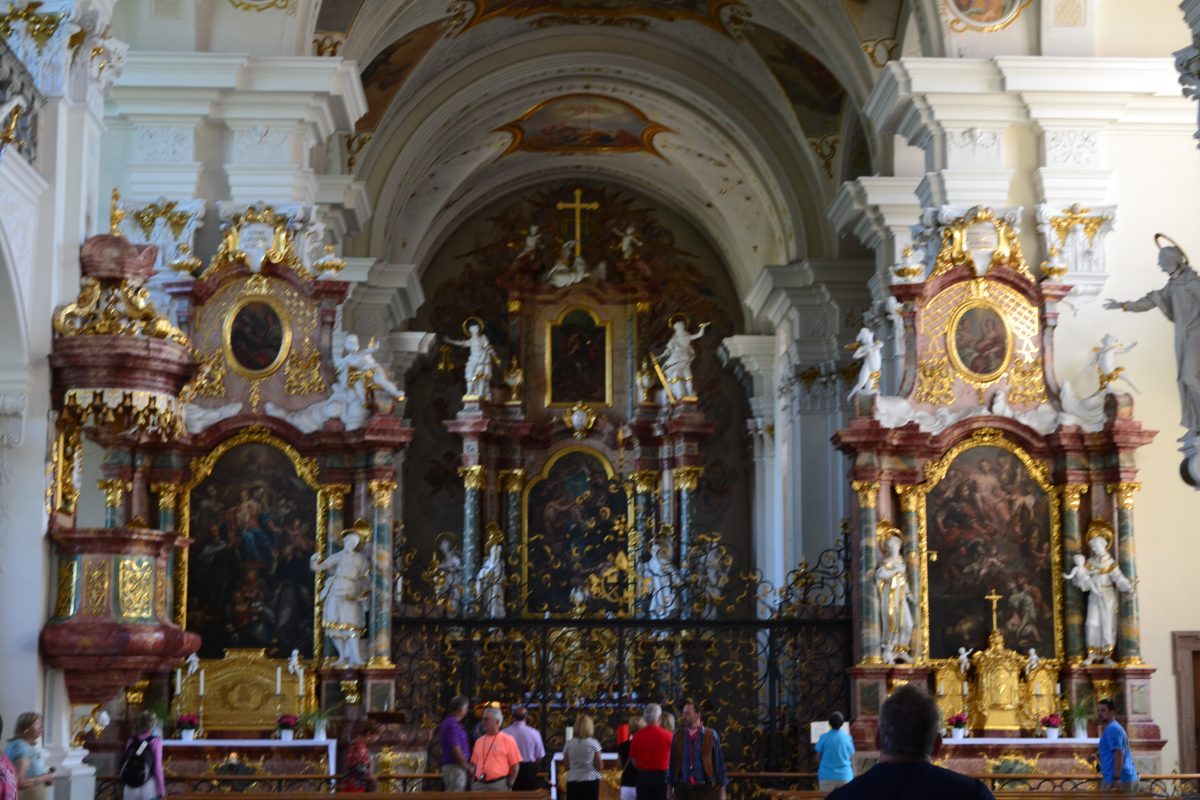Background Passages: Matthew 13:31-33; Romans 10:14-15 and James 2:15,17
We all love a good story. Great storytellers connect with us on a personal and emotional level, finding ways to engage, influence, teach and inspire all who really listen. While storytelling is both art and science, some folks are naturally gifted storytellers. Others learned the craft over time.
As I’ve studied the Bible over the years, I find myself wishing I could go back in time to walk down the road with Jesus or sit on a rock around his campfire as he was sharing a truth to everyone within earshot. Jesus rarely lectured. To get his point across, he told stories. The Bible calls these stories parables.
If you’ve read enough scripture, you know Jesus was a master storyteller. I also suspect that Jesus’ parables recorded in scripture are probably Cliff Notes versions of the real conversations, edited to the quotable parts that we might actually hear. Listening to Jesus spin his tales would be an experience unlike any other.
Drawing upon images from everyday life, he shared truths about God’s heart and about kingdom living. While we can’t hear him speak, reading his stories in the Bible is the next best thing.
The 13th Chapter of Matthew is filled with story after story that Jesus used to teach about God’s kingdom. Verse 3 says, “Then he told them many things in parables…” And, he did… especially in this chapter.
The parable of the sower and the seed. The parable of the weeds. The parable of the hidden treasure and the pearls. The parable of the net. You’ll also find the parables of the mustard seed and the leaven bread. Two quick parables in three short verses.
Take a look.
And he told them another parable: The kingdom of heaven is like a mustard seed, which a man took and planted in his field. Though it is the smallest of all your seeds yet when it grows, it is the largest of garden plants and becomes a tree, so that the birds of the air come and perch in its branches.
He told them still another parable: The kingdom of heaven is like leaven that a woman took and mixed into a large amount of flour until it worked all through the dough.” (Matthew 13:31-33)
Now, had I been that fly on the deck of Jesus’ rowboat that day, I might have asked, “Jesus, would you care to elaborate? What are you getting at?” If anyone asked, scripture doesn’t tell us. So, we have to think…just as Jesus intended.
To be clear, the mustard seed is not really the smallest seed used in Jesus’ day, but it was proverbial in the first century for “smallness,” a convenient and recognizable example for something tiny or small.
The mustard seed was a garden herb common in regional cuisine of the first century. It does grow into a tree-like bush sometimes as high as 12 feet. Because of its tree-like structure, it would have not been uncommon to see birds resting, nesting and feasting on the little black seeds.
Jesus followed his tale of the mustard seed with another familiar picture drawn from everyday life. Bread was the staple of life in the first century. Leaven is nothing more than fermented dough kept over from a previous baking of bread.
Bread without leaven, unleavened bread, always baked flat, dense and hard. Leaven served the same purpose as yeast does today. Mixing leaven into fresh dough made the bread soft, porous, spongy and delicious. (I can smell it baking, can’t you?)
What truth is Jesus conveying when he used this imagery as he taught?
It could not have been easy for the disciples to watch great crowds gather around Jesus and have the majority of them walk away unaffected and unchanged by Jesus’ words. Earlier in Matthew’s gospel, they asked Jesus, “Why do you speak to the people in parables?” It’s as if they were saying, “Why do you tell these stories? Just tell them how the cow ate the cabbage.”
Jesus, in essence, told his disciples that the hearts of the people had grown calloused to the point of not hearing anything remotely resembling a sermon.
By virtue of being Jewish, they were God’s chosen after all. They could not and would not understand the unvarnished truth about the changing nature of God’s kingdom. Jesus told his disciples that he spoke in parables because “…they hardly hear with their ears and they have closed their eyes.” (Matthew 13:15)
At the end of other parables, Jesus sometimes says, “He who has ears, let him hear.” In other words, Jesus is saying, if you’re paying attention and if you’ll think about it seriously and how it fits into your life, you’ll see what I’m trying to tell you with this story.
In these verses, the picture Jesus paints with his stories is about the stunning and exponential growth of God’s kingdom.
Now, it might be helpful here to define “God’s kingdom.” When you and I declared Christ as Lord and have gave him control of our lives, we entered the kingdom of God. A group of believers who trust him as savior and live each day in the “righteousness and peace and joy in the Holy Spirit.” (Romans 14:17) It is the community of faith allowing God, through Christ, to govern the way we live.
These two parables run parallel teaching about the stunning growth of God’s kingdom. when the tiny mustard seed becomes a large tree and the lump of leaven permeates the whole dough.
Think about how it all started. Jesus and a handful of disciples working throughout Galilee and Judea, taking a message of repentance and hope to all they encountered as they lived out their lives. Each step along the way, the kingdom grew as more and more people believed in and trusted Jesus.
After Jesus’ ministry, the New Testament church began in the upper room in Jerusalem with about 100 followers, none of whom were great religious scholars. Fishermen. Tax collectors. Zealots. Poor. Uneducated. Frightened. A bunch of nobodies who found themselves with the one person who was the glue holding them together.
Through the power of the Holy Spirit and over the span of 2,000 years, the kingdom of God has grown beyond expectation. From this mustard seed, this lump of leaven, the gospel of Christ has spread throughout the world. In doing so, it has become a place of spiritual food and rest for the birds in its branches and a transforming power in the world’s lump of dough.
Yet, there is a reason why these parables still speak to us today. It’s the same reason Jesus told them in the first place.
We live in a world today in which the hearts of people have grown calloused. By virtue of living in a “Christian country,” we assume some favored status in God’s kingdom. We’ve become some hard-hearted in our culture that we “hardly hear with our ears and we have closed our eyes” to his truth.
Recent statistics show that the number of non-churched, unchurched and de-churched people is growing at about 10 percent each decade. In other words, the population non-believers, believers who have never plugged into a church after committing their lives to Christ increases a bit each year.
The number of those believers who left the church because they were hurt by someone or something within the church keeps growing as the church itself is shrinking. It is an alarming trend.
That phenomenon becomes more and more evident over the past 50 years. We could easily list the reasons behind the decline, but that’s not really the point here. I think the only reason that matters is that the church quit consistently reaching out in ministry and love.
We open our doors, very willing to love and help all who enter our doors, but we rarely do as Jesus did and go out to meet them where they live. To ministry in the neighborhoods.
In Paul’s letter to the church in Rome, he told them how to become a part of the kingdom of God.
If you confess with your mouth, “Jesus is Lord,” and believe in your heart that God raised him from the dead, you will be saved…Everyone who calls on the name of the Lord will be saved.” (Romans 10:9, 13)
Then, Paul issues the challenge that reverberates from the 1st century to the 21st.
How then, can they call on the name of the one they have not believed in? And how can they believe in the one in whom they have not heard? And how they can hear without someone preaching to them? And. how can they preach unless they are sent? As it is written, how beautiful are the feet of those who bring good news.” (Romans 10:14-15)
Author Cecil Northcott once told of an international evangelical convention he attended to discuss how the gospel might be spread. The people in attendance talked about the distribution of literature, large scale revivals and other means available in the early 20th century. Then, one girl from Africa spoke.
“When we want to take Christianity into one of our villages” she said, “we don’t send them books. We send a Christian family to live in the village and they make the village Christian by living there.”
That’s how it’s supposed to work, I think. We can’t wait for the lost and the hurting to come to us first, though some do. We most often must go to them. We must be there ready to love and care for them. We can’t ignore their existence or fail to meet their needs.
“Suppose a brother or sister is without clothes and daily food. If one of you says to him, “Go, I wish you well. Keep warm and well fed,” but does nothing about his physical needs, what good is it? In the same way, faith by itself, if it is not accompanied by action, is dead.” James 2:15-17)
If we fail to be the church outside the walls, we will soon become the empty church within the walls.
As we recently visited many churches throughout Eastern Europe, it was profoundly sad to see these churches become little more than museums of time gone by. How different would it be if they were more mission and less museum?
As more and more people become disillusioned and de-churched, I fear our own churches throughout America will become these cold museums, relics of a time in history.
Jesus told his parables to connect with people. His stories used the ordinary to teach extraordinary spiritual truths. He didn’t print them up and hit them over the head with a tract. He told his stories. Made connections. Built relationships. Met needs. Then, he loved them into the God’s kingdom.
You and I and all who profess a faith in Christ, have a story to tell. It is the good news of Christ…his free gift of grace available to all. It is also the love expressed by God’s people as we go out into our respective communities on mission to love and serve.
I think that’s the challenge of these marvelous parables. God’s desire is for the world to be saved and for his kingdom to grow. Be the mustard seed. The only way for that to happen is for his people to be the leaven that causes it to rise.
———
I’ll beg your indulgence and forgiveness for this personal note.
I am a member of South Main Baptist Church. We’ve been blessed for almost seven decades with wonderful pastors and a service approach to ministry and missions. I’ve been blessed by the preaching of our new pastor, the worship through singing and praise, the great Bible teaching and the opportunities to serve.
Our people recently adopted a new mission statement. It promises that our church is in an ongoing mission to be “engaging and equipping others to experience and share God’s transforming love.”
The desire is to keep stepping outside the physical confines of the church to build relationships with our community and encouraging others to join us as we grow together in the work of Christ. Our desire is for the kingdom of God to increase as more and more people discover God’s grace and love.
Toward that end, we will be gathering at 5:30 p.m., Wednesday, May 31, at Pasadena’s Crenshaw Park Softball Fields for “First Pitch”–a little kick ball, a bunch of free hot dogs, family games and an open invitation to let us get to know you.
For the better part of four decades, South Main has made two promises to those who come to us. “We promise to love you and let you love us” as we serve our Lord together.
We’re not perfect, but we strive to be more Christ-like every day. If you’re longing to find a church where you can serve and be served, drop by for a visit. We’d love to get to know you and let you get to know us.
Hope to see you there.




